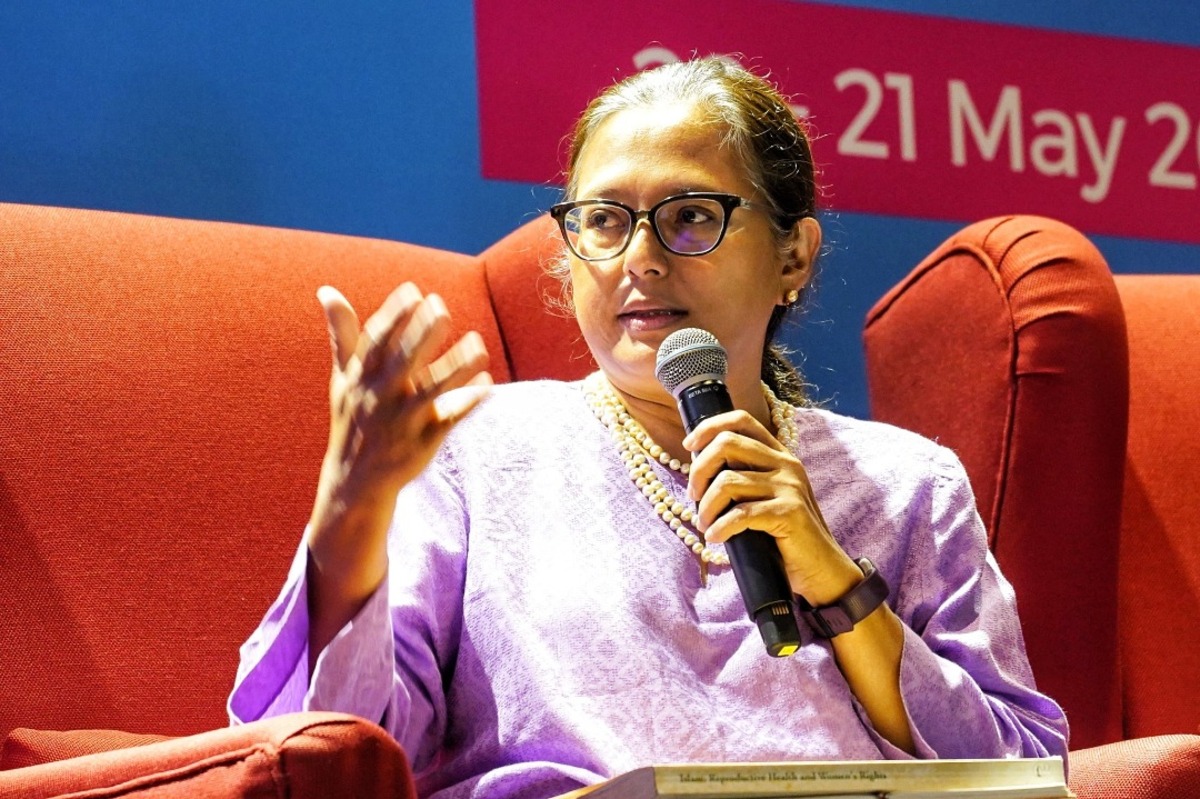KUALA LUMPUR, Oct 3 – The use of contraception or birth control is permissible in Islam, according to women’s rights group Sisters in Islam (SIS).
The Muslim non-governmental organisation says there are no verses in the Quran on birth control, though there are prophetic traditions on coitus interruptus, or the withdrawal method.
SIS executive director Rozana Isa said the Quran’s general “silence” about birth control or contraceptives has been interpreted by Islamic scholars, including Al-Azhar University’s former chief population adviser Dr Abdel Rahim Omran, as not prohibiting family planning.
“There is no verse in the Quran that forbids family planning, so the Quran is actually silent. And the silence of the Quran on this issue has been interpreted by many ulama (scholars) to mean that the Quran does not prohibit this practice,” Rozana said in a forum at the “Tackling Unintended Pregnancies In Malaysia” conference organised by the Galen Centre for Health and Social Policy, with the support of health care company Organon Malaysia, last May 20.
However, Rozana said there are several narrated prophetic traditions (hadith) on the practice of coitus interruptus or withdrawal – where the penis is withdrawn during sexual intercourse before ejaculation – in which the traditional family planning method was not prohibited.
Rozana cited one authenticated hadith that states: “We used to practise al-’azl (withdrawal or coitus interruptus) during the time of the Prophet. The Prophet came to know about it, but did not forbid us from doing it.”
“There are revelations that are very specific. For example, there are verses discouraging drinking alcohol but there really is none that discourages family planning,” Rozana said.
“So, we are clear. Islam does not prohibit family planning and the use of contraception. It’s a fact, established 25 years ago by SIS through this research, so let’s move on to how we can encourage the use of contraception and family planning.”
SIS’s booklet “Islam and Family Planning”, published in the year 2000, compiles answers to theological questions about family planning in Islam that was largely derived from Abdel Rahim’s “Family Planning in the Legacy of Islam” book that was first published in 1992 with the support of the United Nations Population Fund.

Obstetrician and gynaecologist Dr John Teo, who was also a panel speaker at the forum, called for medical programmes to include training on family planning so that medical workers are “sensitised” in providing needed care to patients inquiring about the matter.
“There is a lot of stigma [about contraceptives and family planning],” said Dr Teo, who is also chairman of the Obstetrical and Gynaecological Society of Malaysia (OGSM) family planning subcommittee.
“The thing is that it doesn’t come naturally to health care providers. You need to be trained. You need to be sensitised. If you have family planning doctors and nurses who are trained in not only the technical knowledge, but about the sensitivities of the subject that they deal with then it works,” Dr Teo said.
Dr Teo said for every RM1 invested into family planning, there are RM4 savings in health care settings in the prevention of unintended pregnancy and delivery services, among others.
“If you were to actually divide them into the different methods of contraception, the oral contraceptive pill is RM4 (savings for every RM1 invested), condom is RM1.47, intrauterine device (IUD) is RM7 – for RM1 investment, RM7 will come back – and of course, implant is RM15.90 to be exact. That means there is a huge cost savings,” Dr Teo said.
“The problem is that when we budget for family planning, we don’t look at returns, but we look at just the budget and that’s why we can’t get more investment into highly effective contraception,” Dr Teo added.
A 2014 study by the National Population and Family Development Board (LPPKN) showed that Malaysia’s contraceptive prevalence rate (CPR) is only 52.2 per cent – this is just for married women. Only 34.3 per cent use effective modern methods of contraception, such as birth control pills, barriers, injections, tubal ligation, intrauterine devices or implants.
Pengerang MP Azalina Othman Said, in her keynote address at the conference, described unintended pregnancies as a “silent ongoing crisis”, noting that 14 in every 1,000 girls below the age of 18 are pregnant, amounting to an estimated 18,000 annual pregnancies, of which 4,500 pregnancies are out of wedlock. An average of nine babies are reportedly abandoned every month.
Similarly, Galen Centre chief executive Azrul Mohd Khalib described family planning as an “essential investment” in Malaysia’s health care system, noting that unintended pregnancy is not a problem confined to unwed teens or low-income women, but is a national concern cutting across all segments of society.
At the conference, Women, Family and Community Development Ministry secretary-general Maziah Che Yusoff stressed the importance of access to contraceptives, saying that sexual and reproductive health should not be seen as a controversial issue.









